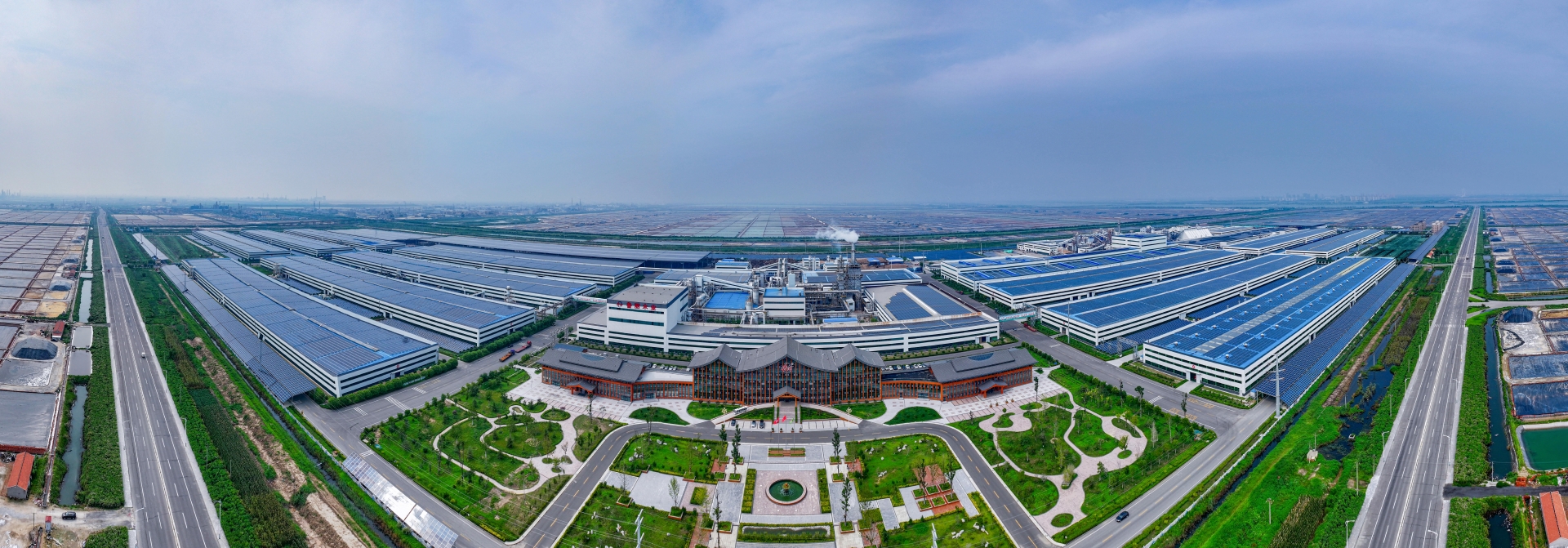




FOSB
FOSB workshop spans 618 meters. Process 1: Forming
Forming involves oriented strand layering of resin-coated wood strands into a mat using German Dieffenbach high-precision formers with eight heads. Flexible head configurations enable diverse FOSB products meeting international standards for surface quality, waterproofing, moisture resistance, compressive strength, anti-creep properties, and nail-holding capacity. This process is pivotal for market-specific product differentiation.
Process 2: Hot Pressing
Mats undergo high-temperature/high-pressure forming in Dieffenbach's next-gen CPS+ continuous press (65m length × 2.8m width)—Asia’s largest single-line press. It reduces power/heat consumption by ≈20% and wood usage by ≈15% compared to traditional multi-daylight/single-opening presses.
Process 3: Flipping & Cooling
Pressed panels are trimmed by edge/corner saws, tested for bubbles/thickness online, then cooled in flip-coolers. Automated stacking systems transfer panels to buffer storage (10,000m³ capacity).
Process 4: Sanding
Swiss Steinemann/Sufoma (domestic) sanders achieve ±0.05mm thickness tolerance with 0.5–0.7mm abrasion. Operating at 50m/min, single-shift output reaches 1,300m³. Automatic edge tracking eliminates manual adjustments post-belt replacement, reducing costs and improving finish.
Process 5: Sawing
German Antron/Sufoma angular sawing systems feature 260mm-high vertical/horizontal saws. Cutting 120m³/hour across 7500×2500 mm panels minimizes edge defects and voids.
Process 6: Packing
Lite-Sufoma automatic packers with height-sensing light curtains enable unmanned handling. Stable stretch-film wrapping (25 packs/hour ≈80m³) ensures waterproof/dustproof storage integrity.
Luli Wood advocates craftsmanship under "green, low-carbon, innovative, coordinated" principles. Rigorous quality controls at each stage—from R&D to customized mass production—guarantee globally delivered premium products.





